Final report for YENC18-132
Project Information
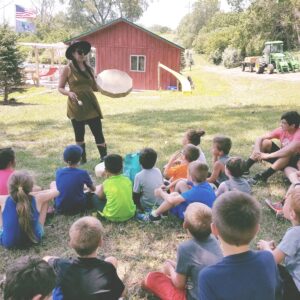
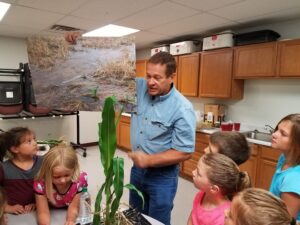
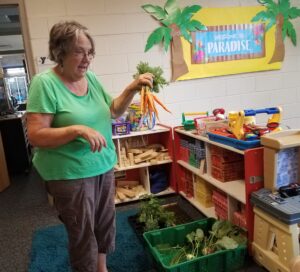
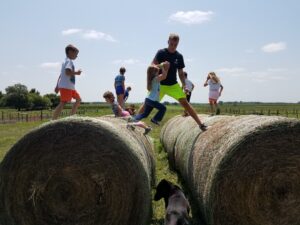
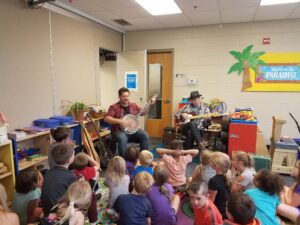
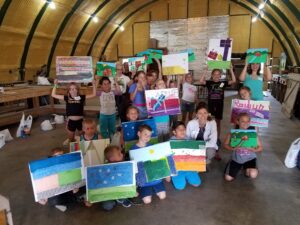
Cooperators
- (Educator)
- (Educator)
- (Educator)
- (Educator)
- (Educator)
- (Educator)
- (Educator)
- (Educator)
- (Educator)
- (Educator)
- (Educator)
- (Educator)
- (Educator)
- (Educator)
- (Educator)
- (Educator)
- (Educator)
Educational & Outreach Activities
Participation summary:
Education and outreach activities
Each of the seven AgArts camps had different educational learning outcomes and activities. Participants engaged in planting seeds, sampling herbs and local vegetables, feeding livestock (chickens, goats, cattle), sculpting pottery, painting pottery and canvas, storytelling, cooking, writing and singing songs, physical activity (hay bales), prairie identification activity, hayrack ride, natural art (using materials found outside to create bundles) and explore Native American instruments and attire. We promoted the seven AgArts camps through promotion prior and during on social media, several press releases, a video, and Channel 3 News shared the AgArts camp story. In addition to a June 2018 presentation at the Outdoor Learning Environment Conference, there's potential to present at the Local Foods Community Systems Program and the nonprofit conference in Hastings, NE in 2019.
Learning outcomes
June 7: Fork Tale Farm:
Students will classify the different breeds of chickens; explain the benefits of raising chickens; indicate the process of raising chickens; outline the stages of growing a garden; make a rhubarb crisp with fresh rhubarb from the garden; write an ag story; perform an ag story; create and paint a clay pot –1 farmer, 1 artist, 1 educator; 7 participants (1st-4th grade)
June 11: Rolling Acres: Demonstrate how to grow food; taste locally-grown food; listen and perform “The Three Sisters;” engage in storytelling activities; listen to an ag story; collaborate with artist Chad Elliott to create an ag song and painting- 1 farmer, 2 artists, 1 educator; 3 YMCA helpers; 44 participants (YMCA 1st-5th grade)
June 13: Resilient Farms: Paint a farm scene; design and build an art structure with various media; create an ag story; plant one of the “three sisters,” and learn how to care for the plant; eat a locally-sourced meal; 2 farmers; 2 volunteers; 2 artists; 1 educator; 2 YMCA helpers; 25 participants (YMCA 1st-5th grade)
June 15: Jerry Banks Acreage: Explore an Iowa prairie and identify plants with a naturalist; sketch an painting with pencils and pond water; recognize goats and chickens; create nature bundles with a Native American artist and healer; discuss the story of the “Three Sisters;” explore and practice playing drums and learn about Native American clothing and importance of fire; listen to a flute; 1 naturalist, 1 farmer, 1 landowner; 1 educator; (28 participants; YMCA 1st-5th grade)
June 20: Teachout farm – Explain the importance of soil health; summarize how to grow plants; discuss the importance of cover crops; create and perform a story; engage in theatre games to enhance creativity; construct soil art; 1 farmer; 2 theatre educators; 2 volunteers; (Shenandoah Elementary 15 participants; 1st-5th grade)
June 22: Maple Edge Farm –craft pots with soil from the farm; explain the importance of soil health plant seeds; sample herbs from the garden; design and create ag masks; – a blend of ages, families; 3 farmers, 2 theatre educators, 1 potter, 3 volunteers (13 participants from the Ronald McDonald House)
June 29: Maple Edge Farm – create a farm scene with clay and other natural materials; learn about the importance of livestock, specifically goats, chickens, cattle; assist with feeding livestock; design and create sock puppets and perform with them; sing songs with a saw player; 4 farmers; 3 volunteers; 1 educator (12 participants from the Ronald McDonald House)
Project outcomes: Attendees will learn artistic and agricultural skills from farmers and artists.
Attendees will connect with urban and rural community members to strategize ways to eat healthier, locally-sourced foods to make positive impacts on the environment and in their communities.
Learning Outcomes
Plants require healthy soil to grow, and we all have an impact on soil health. Livestock benefits the land. "Dirt is dead, and soil is alive."
Project Outcomes
Chat Mobility and Glenwood State Bank each donated $500 to support the AgArts camps. Additionally, six different farming operations participated in the project and several are interested in continuing a partnership in ag education.